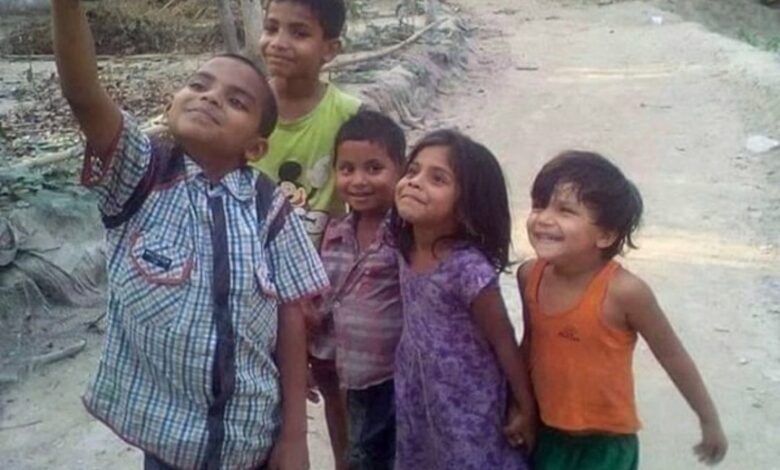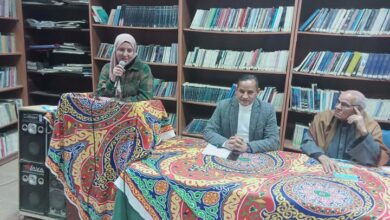منوعات
السعادة لا تشترى .. السعادة تزرع

بقلم د.على ناصر & د.منى عكاشة
الإنسان كائن لم يعد يبحث عن الحياة فقط، بل عن لحظة.
لم نعد نطلب السعادة كغاية، بل نلهث خلف ومضات متقطعة من لذة عابرة. وكلما اقتربنا من واحدة، تبخرت. فما الذي تغيّر؟ من الذي سرق استقرار الروح وعمق المعنى؟
إنها لعبة الدوبامين الكبرى؛ اللعبة التي نلعبها جميعاً دون أن نعي أننا الخاسر الوحيد.
التحول من إنسان الوعي إلى إنسان التفاعل:
في أزمنة التأمل والصبر، كانت السعادة تُولد في المساحات الهادئة بين الجهد والإنجاز، بين الانتظار والتحقق.
أما اليوم، فنحن نعيش عصر “ اللحظة الجاهزة”، حيث نضغط زراً، فنحصل على لذّة، نُنزّل تطبيقاً فنُشبع احتياجاً وهمياً، نشاهد مقطعاً فينزل على قلوبنا شيءٌ يشبه الطمأنينة، ولكنه لا يدوم.
ما الذي يحدث هنا؟ إنه الدوبامين… الناقل العصبي المسؤول عن شعور المكافأة والتحفيز، الذي يعمل مرسالًا بين خلايا الدماغ حين يشعر الإنسان بلذّة أو إنجاز.
ولكن في العصر الحديث، ارتبط الدوبامين بالإدمان السلوكي، لأن كثرة التحفيز (مثل الهاتف، الألعاب، وسائل التواصل) تُفرزه بشكل مفرط، مما يجعل الإنسان يطلب المزيد بشكل لا واعٍ ويشعر بالفراغ في حال غيابه.
الدوبامين: حين يتحوّل الحافز إلى قيد:
الدوبامين ليس عدوًا، بل هو هبة من الله خُلقت لتدفعنا نحو العمل والبناء والإنجاز.
ولكن هذه الهبة أصبحت لعنة حين دخلت إلى سوق الاستهلاك السريع.
تخيل هذا المشهد:
تفتح هاتفك، ترى إشعارًا من شخص يهمك، فيرتفع مستوى الدوبامين في دماغك. تشعر بلذّة خفيفة، بانتعاش لحظي. تفتح الرسالة، ترد، وتنخفض المتعة. ولكن دماغك سجّل: “الإشعارات = متعة”.
فتبدأ بالعودة للهاتف مرة تلو أخرى، ليس حبّاً في الرسالة، بل رغبة في تكرار الدفعة الكيميائية الصغيرة. ومع الوقت، تفقد السيطرة دون أن تدرك، ويبدأ الإدمان السلوكي.
هكذا تُسحب أدمغتنا منّا على مراحل:
• نطلب المتعة.
• نحصل عليها بسرعة.
• لا تكفينا.
• نطلب المزيد.
• نُرهق… ثم نشعر بالفراغ.
وأخطر ما يغذي هذا النمط من التعلّق غير الواعي هو مقاطع الريلز القصيرة (Short Reels) التي انتشرت على كل منصة.
فهي لا تمنح الدماغ فرصة للتركيز أو التمهّل، بل تَغرسه في دوامة من الانتقالات السريعة، والانفعالات الفورية، دون أي بناء معرفي حقيقي أو تدرج عاطفي متزن.
وهكذا يُبرمج العقل ليطلب التنقّل السريع بدلًا من التعمق، ويُصاب الجسد بالتيقّظ المستمر، وتضعف قدرة النفس على الاستقرار والصبر، لتدخل في حلقة متصلة من القلق والإرهاق الذهني.
إنه جوعٌ لا يشبع، شبيه بما وصفه الله في كتابه:
“وَاتَّبَعَ هَوَاهُ فَمَثَلُهُ كَمَثَلِ الْكَلْبِ إن تَحْمِلْ عَلَيْهِ يَلْهَثْ أو تَتْرُكْهُ يَلْهَث” [الأعراف: 176]
إنه اللهاث الذي لا يتوقف، سواء أعطيت النفس ما تشتهي، أو منعتها. لأن النفس إذا تعودت على التحفيز اللحظي، عطِشت له دائماً، ونسيت طعم السكون.
علاقات في مهبّ التحفيز اللحظي:
العلاقات العميقة لم تعد تُبنى كما في السابق.
لا وقت للمكاشفة، ولا صبر على الخلاف، ولا رغبة في النضج.
كل شيء مؤقت، وكل شيء قابل للاستبدال.
لقد أصبحنا نحب عبر الإشعارات، ونفتقد عبر الرموز، ونحزن عبر “ستوري”، ونفرح عبر قلبٍ صغير أحمر.
لقد استبدلنا العمق بالسرعة، والصبر بالرد السريع، والمشاعر الحقيقية بردود فعل آنية.
فكيف تنشأ الروابط العميقة؟
كيف تتكوّن الحميمية؟
كيف نُشفى من الوحدة إذا كنا لا نجلس مع أحد دون أن ننظر في هواتفنا كل دقيقتين ؟
كيف نسمع الآخر، ونلمس قلبه، ونحن لا نسمع حتى أنفسنا؟
الروح بين التشتت والسكينة:
الروح التي خُلقت لتسكن، لا تقوى على العيش في ضجيج التحفيز المستمر.
لقد فقدت البشرية جزءًا من هدوئها حين أصبحت الحياة أشبه بسلسلة من المثيرات المتلاحقة.
ما عاد للصمت جمال، ولا للتأمل مكان، ولا للبطء قبول.
لكننا ننسى أن بعض الشفاء لا يحدث إلا في الصمت.
أن بعض النضج لا يُولد إلا من الألم، وبعض الحكمة لا تأتي إلا من الانتظار.
ومع تدفّق مئات المقاطع القصيرة يوميًا، تقلصت مساحة التأمل، وضعُف الحضور.
فكيف يمكن لعقلٍ شُحن بمئة مشهد عابر في عشر دقائق أن يصغي لنفسه أو للآخر؟
تتآكل القدرة على التعمّق شيئًا فشيئًا، وتتشوّه الصورة الداخلية للزمن، حتى يظن الإنسان أن كل شيء يجب أن يحدث “الآن”، وإلا فلا جدوى من انتظاره.
يقول تعالى:
“فاذكروني أذكركم” [البقرة: 152]
في هذا الذكر طمأنينة. في هذا الحضور عودة. في هذا التوقف عن اللهاث… حياة.
الصيام الدوباميني: العودة إلى التوازن النفسي :
الصيام الدوباميني ليس تركًا دائمًا للملذّات، بل هو استراحة واعية منها.
هو أن تُنظّم علاقتك بالأشياء التي تفرز الدوبامين لديك.
أن تتوقف عن المحفزات السريعة لفترة، حتى تعيد ضبط دماغك، وتُدرّب روحك على الصبر، وعقلك على التركيز.
ابدأ بيومٍ دون هاتف.
اقرأ كتابًا دون أن تقطعك إشعارات.
اجلس مع من تحب، وأنصت.
صلِّ ببطء.
اذهب إلى الطبيعة، وامشِ بلا هدف… فقط امشِ.
ستكتشف أن المتعة الحقيقية ليست في كمية الدوبامين، بل في جودة التجربة.
وأن السعادة ليست في الانفعال اللحظي، بل في السلام الداخلي.
همسة أخيرة: السعادة لا تُمنح، بل تُبنى
لقد آن أوان الصحوة.
أن نستعيد سيادتنا على أدمغتنا، أن نسترجع الهدوء من بين زحام وأنقاض الضجيج.
أن نُحب بصدق، ونعيش ببطء، ونتأمل بعمق.
أن نتوقف عن اللهاث خلف لحظة… ونبدأ في بناء حياة.
السعادة لا تُشترى… السعادة تُزرع
Man is a creature that is no longer looking for life only, but for a moment.
We no longer ask for happiness as an end, but we gasp behind intermittent flashes of fleeting pleasure. The closer we get to one, the more it evaporates. So what has changed? Who stole the stability of the soul and the depth of meaning?
It’s the great dopamine game; the game we all play without realising that we’re the only loser.
Transforming from a human being of consciousness to a human being of interaction:
In times of meditation and patience, happiness was born in quiet spaces between effort and achievement, between waiting and checking.
As for today, we live in the era of “ready-made moment”, where we press a button, we get pleasure, we download an application and satisfy an imaginary need, we watch a clip and something that comes down to our hearts that looks like reassurance, but it does not last.
What’s going on here? It is dopamine… the neurotransmitter responsible for the sense of reward and motivation, which acts as a messenger between brain cells when a person feels pleasure or achievement.
But in the modern era, dopamine has been associated with behavioral addiction, because frequent stimulation (such as the phone, games, means of communication) secretes it excessively, which makes a person unconsciously order more and feel empty in his absence.
Dopamine: When the stimulus turns into a restriction:
Dopamine is not an enemy, but a gift from God created to push us towards work, construction and achievement.
But this gift became a curse when it entered the rapid consumption market.
Imagine this scene:
You open your phone, you see a notification from someone you care about, the level of dopamine in your brain rises. You feel a mild pleasure, with instant refreshment. The message opens, replies, and the fun goes down. But your brain recorded: “Notifications = Fun”.
It begins to return to the phone again and again, not out of love in the message, but of a desire to repeat the small chemical batch. Over time, she loses control without realizing it, and behavioral addiction begins.
This is how our brains pull away from us in stages:
• We ask for pleasure.
• We get it quickly.
• Not enough for us.
• We ask for more.
• We get tired… then we feel empty.
The most dangerous feature of this pattern of unconscious attachment is the short reels that have spread on each platform.
They do not give the brain a chance to concentrate or slow, but rather instill it in a spiral of rapid transitions, immediate emotions, without any real cognitive construction or balanced emotional gradation.
Thus, the mind is programmed to ask for rapid mobility instead of deepening, and the body becomes constantly alert, and the ability of the soul to stability and patience is weakened, to enter a continuous cycle of anxiety and mental exhaustion.
It is an insatiable hunger, similar to what God described in his book:
“And follow his lust, his example is like a dog, if you carry it, he will pant or let him gasp” [Al-A’raf: 176]
It is the disling that does not stop, whether you give the soul what it desires, or prevent it. Because the soul, if it gets used to momentary stimulation, is always thirsty for it, and forgets the taste of stillness.
Relationships in the blow of instantaneous motivation:
Deep relationships are no longer built as before.
No time for disclosure, no patience for disagreement, and no desire to mature.
Everything is temporary, everything is replaceable.
We have come to love through notifications, miss through symbols, grieve through “story”, and rejoice through a little red heart.
We have replaced depth with speed, patience with a quick response, and true feelings with immediate reactions.
How do deep connections arise?
How is intimacy formed?
How do we heal from loneliness if we don’t sit with anyone without looking at our phones every two minutes?
How do we hear the other, touch his heart, and we don’t even hear ourselves?
The spirit between distraction and tranquility:
The soul that was created to indwell, cannot live in the noise of constant motivation.
Humanity has lost part of its calm when life became more like a series of successive stimuli.
There is no more beauty for silence, no place for meditation, nor for slowness to accept.
But we forget that some healing only happens in silence.
That some maturity is born only from pain, and some wisdom comes only from waiting.
With hundreds of short clips flowing daily, the space for meditation and poor attendance decreased.
How can a mind charging a hundred passing scenes in ten minutes listen to itself or the other?
The ability to go deepers little by little, and the internal image of time is distorted, until one thinks that everything must happen “now”, otherwise there is no point in waiting for it.
The Almighty says:
“Remember me, I will remind you” [Al-Baqarah: 152]
In this mention there is reassurance. In this presence is a return. In this stoppage… life.
Dopamine fasting: return to psychological balance:
Dopamin fasting is not a permanent leave for pleasures, but a conscious break from them.
It is to regulate your relationship with things that secrete your dopamine.
Stop fast stimuli for a while, until you reset your brain, train your soul to patience, and your mind to focus.
Start a day without a phone.
Read a book without notifications.
Sit with the one you love, and listen.
Pray slowly.
Go to nature, walk aimlessly… just walk.
You will discover that true pleasure is not in the amount of dopamine, but in the quality of the experience.
Happiness is not in instantaneous emotion, but in inner peace.
One last whisper: Happiness is not given, but adopted
It’s time to wake up.
To regain our sovereignty over our brains, to regain calm from the crowd and ruins of noise.
To love sincerely, to live slowly, and to meditate deeply.
To stop scalping after a moment… and start building a life.
Happiness is not bought… Happiness is cultivated













